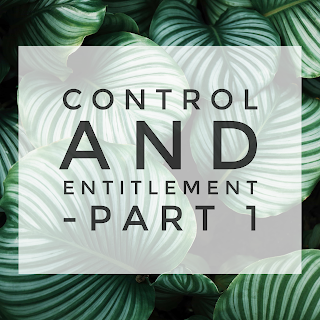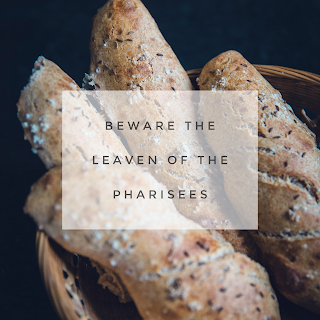by Jennifer Moodie
9/7/2022
Yesterday was our first day of school for the year. I homeschool my children and genuinely love it (although, if someone wants to take my toddler during that time, I would love it even more 😆). My oldest is is 6th grade this year, and we started a new grammar book. As we were reading the introduction to it, I couldn't get over how much I appreciated it and agreed with it, and how it went along with things that have been on my mind. So I wanted to share it with you along with some thoughts of my own.
"Few skills are more important to Christian students than the ability to effectively communicate through the written and spoken word.
Students who profess the Christian faith should have a unique appreciation of the role of verbal communication. It is the Christian, above all, who should seek to be clear and accurate in his use of the written word. His God-given duty is to use language with integrity and accuracy for the sake of promoting the gospel and Kingdom of Jesus Christ. Noah Webster saw this in his day when he wrote:
'If the language can be improved in regularity, so as to be more easily acquired by our own citizens, and by foreigners, and thus be rendered a more useful instrument for
the propagation of science, arts, civilization and Christianity; if it can be rescued from
the mischievous influence of …that dabbling spirit of innovation which is perpetually
disturbing its settled usages and filling it with anomalies; if, in short, our vernacular
language can be redeemed from corruptions, and ... our literature from degradation;
it would be a source of great satisfaction to me to be one among the instruments of
promoting these valuable objects.'
Language as the gift of God needs to be cultivated for serving God. It will not only help the student in academic studies, but in every area of communication, at home, at church, and on the job. …*
This has been on my mind much lately regarding a few various topics, the top two being the way words like "complementarianism" (and words associated with it) and Reformed are used.
I realize you have already read a lot and so I don't desire for this to be long and drawn out, but I wished to say this as briefly as I can. The way we use words matter. And not just the way we use them, but the meaning behind them. And I believe that when it comes to theology and spiritual things we are teaching, the meanings of what we say should be very clear and not ambiguous or muddy. In other words, they cannot mean one thing to me and another to you.
So to start, the way 'Reformed' is thrown around is so unhelpful and is often dishonest, while most likely and most often that isn't the intention. I know this because I have done it. I have called myself Reformed in the past when I was, in fact, not Reformed. I did this because others who were also not Reformed but who used the word as if they were, lead me to believe a false definition of what it meant to be Reformed. So, I hope to briefly clarify what it truly means to be Reformed.
It seems that many use the terms "Calvinist" and "Reformed" interchangeably. This is where much confusion arises. To be Reformed is to be Calvinist- or more accurately, to believe the Doctrines of Grace-but to be Calvinist isn't to be Reformed. Also, I have seen some say that since the believe the 5 Solas, they are then Reformed. Again, you cannot be Reformed and not believe the 5 Solas, but you can believe them and not be Reformed. These things are a sure part of Reformed theology, but are not the whole. They are but the tip of the iceberg.
To be truly Reformed, one must be
Jon Moffit and Justin Perdue over at Theocast have a great explanation here from a Reformed Baptist standpoint of what it means to be Reformed. I am no longer Baptist so I disagree a little on a small area, but still appreciate how easy to understand and gracious this is.
The "5 Points" Of Reformed Theology
R. Scott Clark also has a great blog post with resources on what it means to be Reformed.
Those who don’t hold to these yet claim the title of Reformed are confusing. If one is still Dispensational and/or holds to Lordship Salvation and doesn’t hold to a historical creed and confession, than they are not Reformed. 😉 Therefore it is important that when one uses the title, they do so honestly.
The second topic that has been on my mind with this has been the term “
Complementarian”. That is a term that has come to mean many things to many different people. I often see it used as a way to briefly describe a marriage where the husband and wife "complement" each other. Where his weaknesses are, she is strong, and vice versa. However, while I agree that God indeed made men and women to complement each other, this doesn't mean that all men are all way and all women are another, and if they don't meet the criteria set, they are somehow in sin. Complementarianism has an actual definition, and to quote
Kerry Baldwin, "[it is]
Not to be confused with a general complementarity of the sexes, biblical headship, and qualified male-only ordination. If you think these are “Complementarianism,” then you are not paying attention!"
Complementarianism, when I use the term, is always in reference to how John Piper and Wayne Grudem define it (and those who agree and defend them), since they literally wrote the book, Recovering Biblical Manhood and Womanhood, and coined the term Complementarian (or rather they took a word egalitarians used and redefined it for their purpose), as documented here and here. Complementarianism was coined as a sort of affirmation to and clarification of the Danvers Statement.
I do not affirm Biblical Manhood and Womanhood as defined by Piper, Grudem, and CBMW and others. I believe that as Christians, the Holy Spirit works in us to sanctify us, and that the fruit of the Spirit aren't gendered. I do not affirm that women must submit to all men, nor that wives submit to husbands but the husband doesn't submit to the wife, or that the husband leads and the wife doesn't. I do not affirm that men are the spiritual leaders of the home and are therefore responsible for the choices of the wife. I do affirm qualified male only eldership and that the man is the head of the wife as Christ is the head of the Church (however, I disagree with how that term 'head' is used by most Complementarians I have read). I do not affirm Eternal Subordination of the Son, the use of the Trinity as a model for marriage, or synergistic sanctification which includes biblical masculinity and femininity.
I plan to write more on this topic to further clarify my issues with it, but one large concern I have is how the term means something different to different people, even though someone coined the term with a specific definition in mind. So I want it to be clear that when I speak against Complementarianism, I am speaking against a certain definition of it, and I seek to gently argue that if one doesn't hold to that definition, then they aren't actually holding to Complementarianism but are using the word with their own definition, which is confusing. I have written about that more here. This article, Seven Needed Revisions Within Complementarianism, was very helpful.
This problem of lack of clarity is one large reason I have come to love and appreciate, and wholeheartedly affirm, the Creeds and Confessions. Having these statements that can clearly articulate my Biblical beliefs is a blessing, and a great tool in also clearly teaching my children. When I say I am Reformed, one can know what it is I believe, because to be Reformed is to hold to and adhere to certain creeds and confessions which clearly outline my theological beliefs (but never over the Bible itself...they are not above Scripture, but simply a brief summation).
I want it to be very clear when I say these words--that I am Reformed and not Complementarian--this is what I am referring to and what I mean.
Because words matter.
Soli Deo Gloria
•shared from Jon Moffitt
*excerpts from Application of Grammar Book 1 by Garry J. Moes; Christian Liberty Press 1996 (2022 reprint)





Comments
Post a Comment